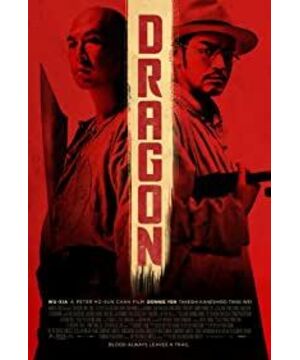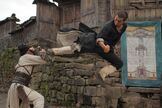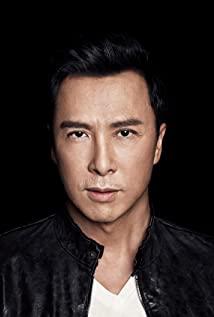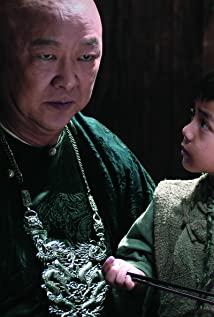This kind of story mode was used once in last year's "Jian Yu". The old acquaintance in the movie was the leader of the killer group, the boss of the killer group. In this movie, the old acquaintance is the adoptive father of Tang Long Xie Sha, the leader of the seventy-two evil spirits.
These old acquaintances hate it because they have to force the already good killers or underworld practitioners to resume their old jobs and do things with them that the good ones have long been unwilling to do.
The innovation of "Wu Xia" is to look at a retired former underworld second-in-command from a fast-catching perspective. The story begins with a criminal case and reveals the other side of a dull and simple farmer. It turns out that he was an important leader of a triad organization who committed several major crimes. The dangerous man of the past has now become an ordinary man who is content with a stable and happy family life. Why even arrest him? In addition to the professional sense of responsibility as a catcher, the guilt brought by a misjudged case a few years ago is also an important motivation. In the case a few years ago, because he believed that a teenager who stole his adoptive parents would be reformed, Xu Baijiu let the teenager go. The latter betrayed his tolerance and poisoned his adoptive parents to death.
It can be seen from this that even though Chen Kexin, the famous director of literary and artistic films, even made martial arts films, he tried to use the techniques of literary films to give the characters rich inner layers. It can be considered that this is the uniqueness of Chen's martial arts films.
If the beginning of the story and the characterization of Xu Baijiu who catch the fast are still remarkable. The second half of the story is really horrific. Since the plot advanced to the discovery of Tang Long's whereabouts by Seventy-two Sha, the movie quickly fell into the old routine of grievances and grievances: you don't want to go back to the rivers and lakes with me, okay, then we will fight to the death and me. Make a decision. This is also done in "Jian Yu", but because the runner king in "Jian Yu" is wishful thinking, several former subordinates have their own thoughts, and the time and method of shooting are different, so a simple fighting plot is shown There are ups and downs, and the inner world of the characters is also colorful.
In "Martial Arts", when the leader of the Seventy-two Disha came to Liu Jinxi's house and threatened Liu Jinxi to go back to the old way, the leader's series of roars caused auditory fatigue. Chen Kexin also tried to enrich the inner world of this person. The leader told the story of how Tang Long could not bear his adoptive father when he was a child, because he missed his adoptive father and cut down the leaves of the small tree in front of the door. The story, told in the roar of the leader, just made me feel awkward and pretentious. The roar of the roaring body of the leader gave me the illusion that I was not watching a martial arts movie, but a crappy family ethics movie.
Maybe "Martial Arts" can be seen as a martial arts film, telling a story of family ethics, a story of a prodigal son who hates autocratic parents, runs away from home, and pursues his own happiness in life. I don't know if this is what Chen Kexin is trying to do, but I know he's not very successful.
View more about Dragon reviews











